Harold Smith, locally born and bred, can be declared as an art icon in our community. Most who are aware of our local art landscape know his name, have seen some of his work, and possibly know that he works in colors, poetic gestures, and jazz motions. What is harder to understand until conversing with him is that this talented, insightful, Black gentleman has been trying to tell all of us repeatedly that he feels invisible. The title of his 2019 show at the Nerman Museum of Contemporary Art was, Can You See Me? Frankly, everyone should have answered, “no.”
How much more clear and concise can an artist get? Harold was literally asking patrons and self-proclaimed art lovers if they could see him. Sure, they could see his art, which had a beautiful exhibit, thanks to the visionary (now retired) director, Bruce Hartman. The art of Harold Smith is bright, colorful, pleasing, enticing, easy to purchase, easy to live with. But the way Harold makes art is through his invisibility, his pain, his life as a Black man in the 20th and 21st centuries. In process for years now, is his series, Man of Color. He is still working on putting pieces in the collection, and it might never be completely finished, because Harold is not finished. He is evolving each day, through each real-life crisis, through each passing glance that doesn’t go his way. The color-saturated, broad strokes that characterize much of Man of Color are delicious. His method of drawing us in is working.
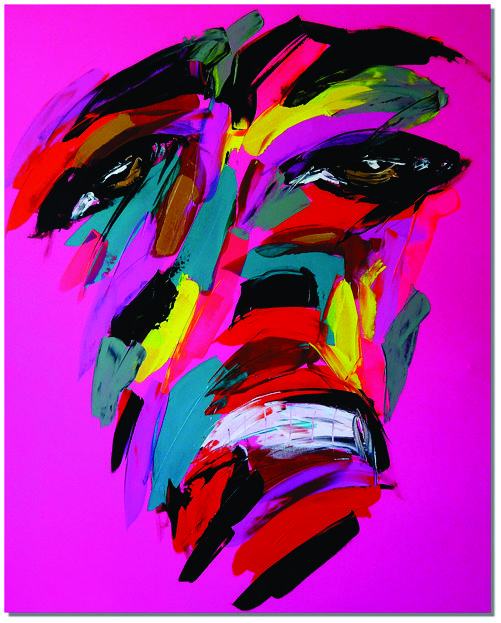
Untitled, Man of Color Series
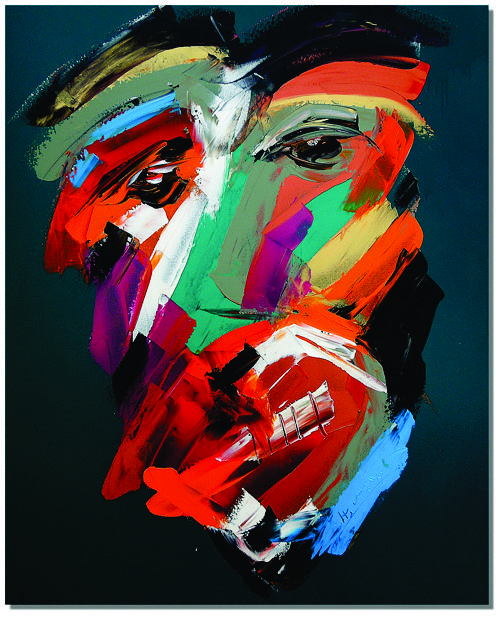
Untitled, Man of Color Series
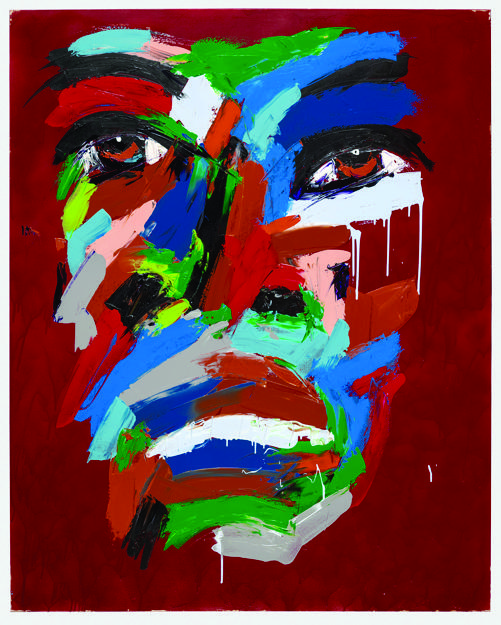
Untitled, Man of Color Series
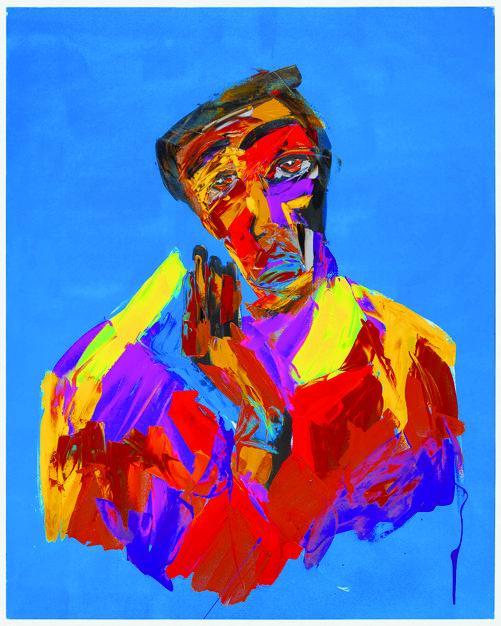
Untitled, Man of Color Series
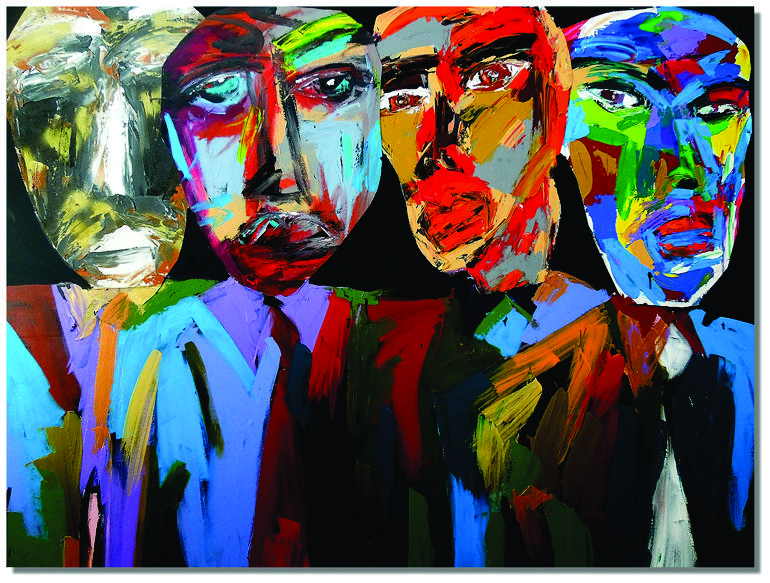
Untitled, Man of Color Series
He has been at this art thing for awhile. Although he was trained as a computer programmer to, as his father advised, “make money,” it was not his love. With a master of arts degree in teaching from Webster University, he now teaches middle school art at Lincoln Prep and works regularly in his home/studio where he has expanded his repertoire into the three dimensional by using panels, fabric, and polystyrene cut into shapes. This latest iteration is, “highly labor intensive,” Harold said.
It could be suggested that everything Harold attempts is labor intensive. He has blended art with the world of jazz, including an exhibit in 2011 at the American Jazz Museum titled, Colors of Jazz. Also a documentary filmmaker, Harold premiered (at the Kemper Museum of Contemporary Art) The Gospel According to Glenn North, in 2017, featuring the work of the inaugural poet laureate of the 18th & Vine Historic Jazz District. Fueling each of his endeavors is Harold’s activist heart.
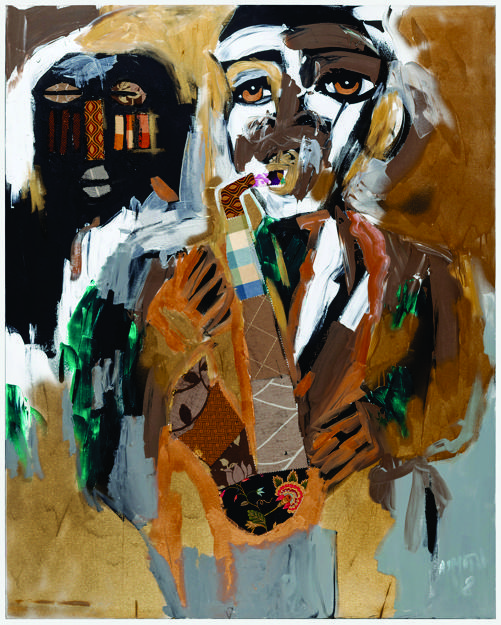
Tribalism
Is it indeed hard for a Black activist artist to be seen and heard? When the question is posed to him, several responses come forth:
“I went into computer and gaming programming because it was difficult for minority artists to find the time and space to create while supporting themselves and possibly a family. No one gave me a building and said, ‘go create art.’ ”
“There are differences in the art world. There is structural racism there.”
“The events starting in 2016 when President Obama left office shook me. They still do.”
“Maybe people are listening more now.”
“Did the pandemic help the public understand the death of George Floyd? There was time to think, protest, act.”
“I’m less optimistic about the world right now. We could be on the cusp of… fascism. But, I have a bigger sense of urgency now to create.”
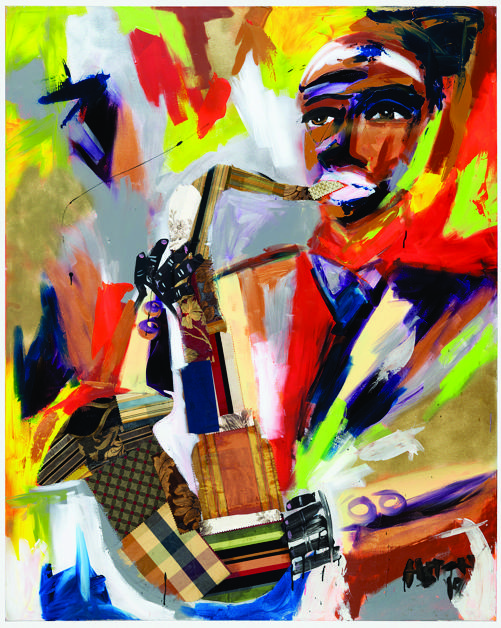
Tribalism 2
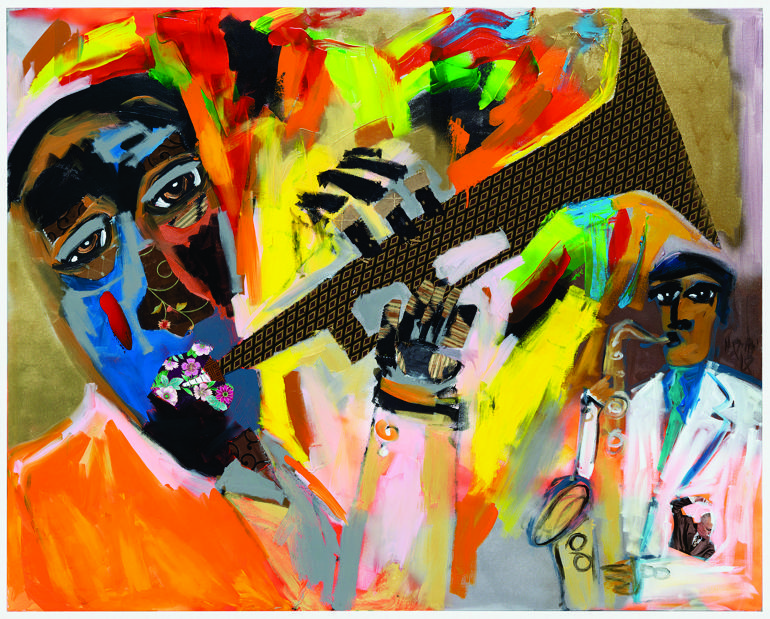
Tribal Horns
As he creates more, and possibly more urgently, he sees his local community in a bit of a different light than before. “The local Kansas City community is sincerely trying to be inclusive. I do want to ask them why they took so long, though,” he half-joked. Then, out of seemingly nowhere, he quoted Malcom X, “Be peaceful, be courteous…” It appears that Harold is the epitome of a peaceful, courteous conscientious objector. He channels his history, his wounds, his heavy load, his people – through his hands, brushes, thought, and sheer talent. Might we even propose that Harold is on his own cusp? He knows no bounds to art or activism, he is endearing and charming while being guarded. The cusp of louder, more attention-drawing activism through his craft is certainly close at hand.
Also featured in the May 29, 2021 issue of The Independent.
By Anne Potter Russ